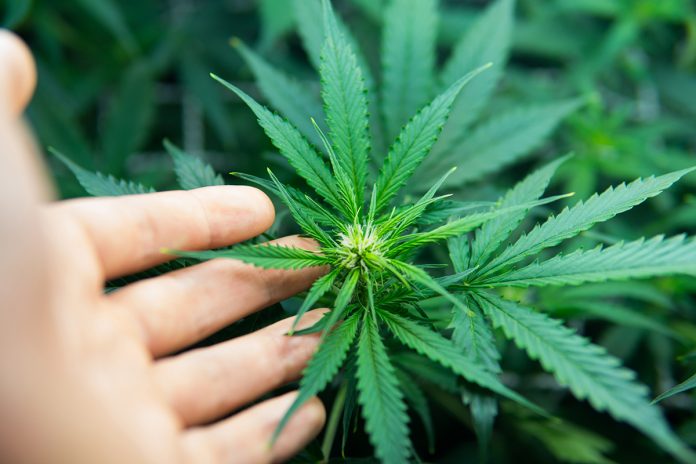As government authorities come to grips with legislation of cannabis-based products, the European market holds a key position, Liam McGreevy, CEO, Ethnopharm Ltd explains
As government authorities come to grips with legislation of cannabis-based products, expanding rapidly year on year, the European market holds a key position.
The combination of population, GDP, nationalised healthcare, and cultural historic use in many countries makes Europe an attractive market for global producers of cannabis-based products, both medical and retail.
European standards are, therefore, now the benchmark to be achieved to facilitate market entry, and Europe has an opportunity to lead the way in establishing sensible regulatory systems that provide safe access to appropriate products while not unnecessarily burdening what have been historically widely consumed products.
The CBD explosion
Europe was the seat of the explosion of the now global CBD trend. While North America progressed medical cannabis legislation across its states over the last fifteen years, these have been high THC focused products based on modern indoor grown plant varieties. CBD was considered a scheduled substance and the cultivation of hemp was banned in the U.S. until this year, leaving a severe lack of high CBD genetics.
Brands like Endoca and Enecta were some of the first to establish a presence using online sales and social media channels to raise consumer awareness of the potential benefits of CBD, and they were particularly successful in countries like UK, Italy and Greece.
European Union (EU) national regulators have struggled to get to grips with the regulation of cannabidiol products, which has proven difficult given that CBD is not a scheduled controlled substance, hemp food products were historically consumed, and extracts of the plant were manipulated for use in medicines and many other applications.
The science
While parties who claim there isn’t sufficient evidence for the medical efficacy of cannabidiol have a point, there is actually a wide base of early stage studies exploring its effects, the physiological systems it impacts, and the mechanisms behind the benefits so many consumers experience.
Cannabidiol doesn’t get you high, it mostly doesn’t interact with the main cannabinoid receptors, it interacts with a range of g-coupled protein receptors and particularly interesting is its interaction with the Adenosine receptors. These exist in the walls of almost every cell in our bodies, triggering our response in fight or flight stress situations, managing vasodilation and heart rate. CBD’s impact on anxiety and stress may be legitimate, it may not all be placebo after all. Cannabinoids and terpenes are powerful compounds whose synergistic effect we are only beginning to comprehend.
With a decade of austerity under our belt, and the progression of automation in the workforce and our daily lives, it should be no surprise that stress and anxiety are becoming more prevalent. One thing that seems to be clear from several studies, as well as the clinical trial testing on Epidiolex, is that CBD is well tolerated and very safe in low daily doses. Given so many consumers are willing to spend their hard-earned money on these products, there is something genuine underlying this technology, and EU companies should have the opportunity to lead this emerging technological field.
The rocky road to a regulated market
Given the widespread and often confusing information being distributed online by companies and brands exploiting a new market area, health authorities are right to protect consumers from false advertising and medical claims, particularly considering that an ICCI market review tested sixty CBD products and found thirty (50%) of them to contain contaminants.
The UK health authority Medicines and Healthcare products Regulatory Agency (MHRA) attempted to protect consumers by classifying CBD as a medical product following the approval of Epidiolex, to restrict medical claims. This had little impact however, with brands and retailers simply tweaking their materials to suit the new parameters….and still many products are on the market today that contain contaminants, or whose contents are nothing like that described on the label.
The recent EFSA guidance note is interesting in that it attempts to provide some clarity between a traditional hemp food product and a ‘new’ or novel concentrated plant extract. Unfortunately, this has only left confusion across many EU markets, with good operators not sure how their national FSA will decide to regulate.
The idea that an extraction process providing a concentrated form of a plant, which is then formulated into products in low strength, is somehow novel when it is standard practice for a plethora of food products is a strange position to take.
Building safe markets
So, the regulatory path to date hasn’t been smooth, and in actual fact it hasn’t worked in making the market safer for those who wish to use CBD products where they feel they offer benefits. If anything, the current regulatory pathway of trying to close the market down only pushes consumers further into the grey market.
What European consumers need is a range of safe strength CBD products available in their normal retail environments, grown, extracted, manufactured and labelled to safe European standards.
Please note: This is a commercial profile
Liam McGreevy
CEO
Ethnopharm Ltd
Tel: +44 (0)773 865 8223











